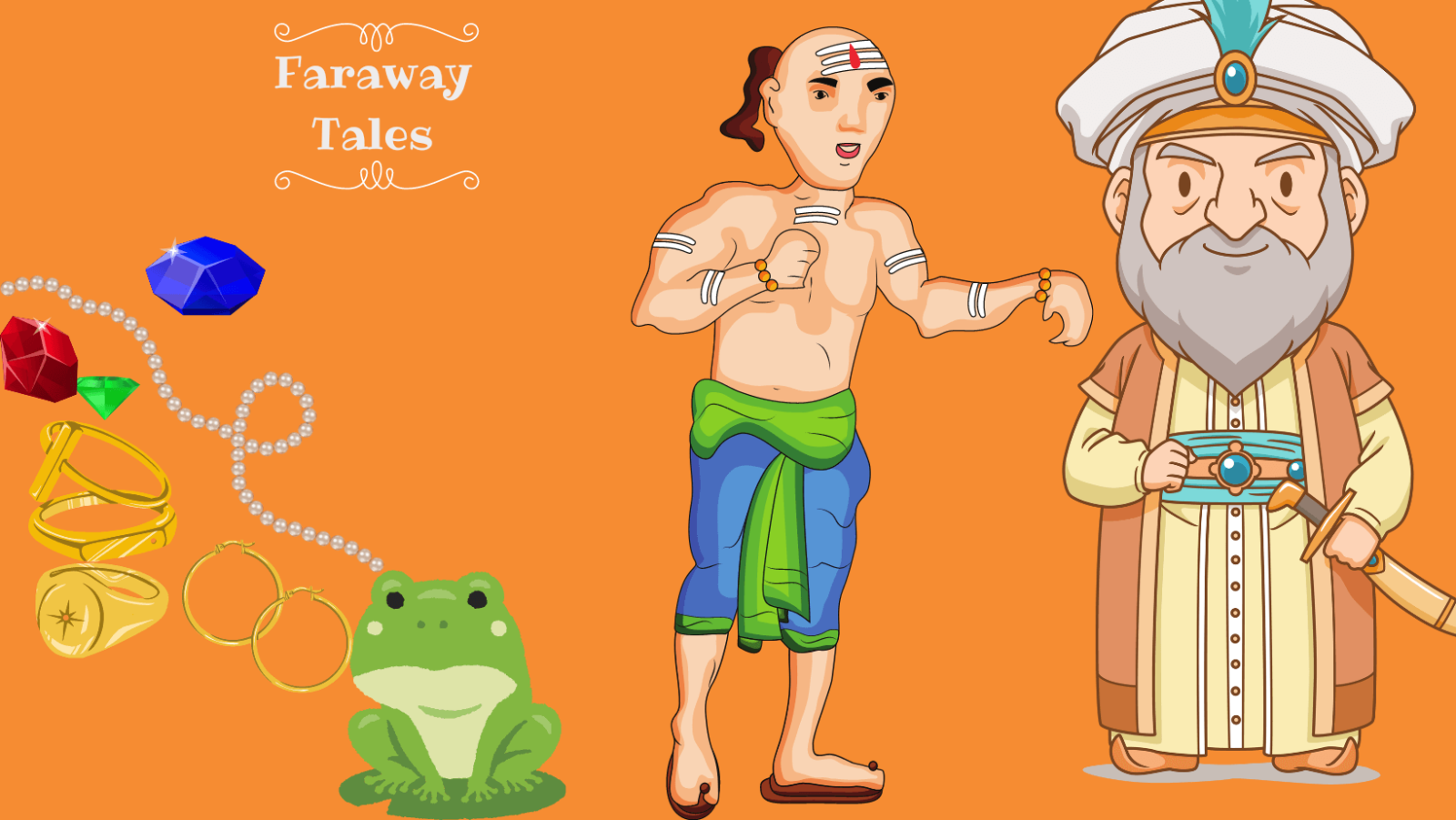|| An Indian folktale ||
Once upon a time, there was a simple brahman named Harisarman. He wandered about begging with his family, and one day he reached a certain city.
There he and his family found employment with a rich man called Sthuladatta. His sons became keepers of Sthuladatta’s cows and other property, and his wife a maid, and he himself lived near his house, performing the duty of an attendant.
One day there was a feast on account of the marriage of the daughter of Sthuladatta, largely attended by many friends of the bridegroom, and merry-makers.
Harisarman’s mouth watered in anticipation of the good food.
While he expected to be fed, no one gave him any thought or asked if he had eaten.
At night he complained to his wife, “It is due to my poverty and lack of knowledge that we are disrespected here. I will pretend that I possess magical knowledge. You go tell the master and mistress that I am very learned”
And they hatched an entire plan.
In the dead of the night when everyone was sleeping, Harisarman stole the groom’s horse and tied it to a tree at a distance from the village.
Sthuladatta was alarmed the next day that his son-in-law’s horse was missing. He considered it a bad omen and sent servants all over to search for it.
Harisarman’s wife told her master about the “magical skills” of her husband. The man summoned Harisarman and asked for his help. The brahman said, “Yesterday I was forgotten, today you need my help”.
The master said, “O learned one, sorry for being ignorant. Now please help find the groom’s horse”. Harisarman pretended to do some complicated calculations, ocassionally chanting made-up mantras.
Finally he said, “You will find the horse to the south of the boundary wall, just beyond the limits of the village”. Servants were immediately sent and the horse was found.
Then onwards, Harsarman was given a small sum of money and was treated with respect. Many days passed.
Some jewels and gold were stolen from the royal treasury. The king summoned Harisarman and asked him to find who the thief was. Harisarman, caught in a fix, asked for a day’s time. He was given a room in the palace.
At night the brahman cursed his own fate aloud, “Curse you, Jihva! (Jihva means tongue). What have you have done through your greediness? You will soon receive punishment in full.”
Now, there happened to be a maid in the palace named ‘Jihva’ who was the actual thief.
She had heard about a brahman with magical powers who was called to find the thief. So she pressed her ear to the door where Harisarman was staying and listened curiously.
At the same time Harisarman was cursing his tongue and his fate loudly. Hearing him address his tongue (Jihva), the maid thought he was addressing her. Fearing exposure, she confessed everything before Harisarman and pleaded not to tell the king, promising she will never repeat it.
Harisarman agreed that he will prevent punishment as long as she returned all the gold and jewels intact. He wondered, “In the fear of her exposure, she made a mistake which worked to my advantage. I must not make the same mistake. After tomorrow, I will excuse myself and go live far away with my family. Enough of living in fear of exposure.”
The maid told him where to find the jewels and the next day Harisarman repeated the same to the king in a dramatic fashion, “Your highness, I sense the presence of the jewels at the roots of the pomegranate tree in the furthest corner of the backyard. Moreover, the thief became aware of my powers and has fled the district.”
The king was pleased and gave him the revenue of few villages. As decided before, the brahman prepared to take leave and live a quiet life elsewhere without any further trouble.
But one of the king’s ministers was not convinced of Harisarman’s skill. He told the king that it is possible that this brahman lives in a secret collaboration with thieves. The king decided to test his powers further.
He asked for a small frog to be sealed inside an earthern pot.
Then he summoned Harisarman and said, “O learned one! We wanted to witness your powers one last time. Guess the object inside the pot before the court and prove your powers beyond doubt to even the skeptical audience”
Harisarman turned white. How was he going to escape this?
Unable to think of any way out, he started lamenting his fate loudly again before the court “You wanted to walk freely and go around, but instead you are trapped here. Oh Manduka! (Manduka means frog) Why didn’t you listen to your father!”, he cried out.
Manduka was Harisarman’s childhood name and his father often used to scold him to study well in his childhood.
All the ministers and the king were satisfied. The minister said to the king, “Pardon me, your Highness. No doubt, he indeed is a great sage”
To Harisarman’s immense relief, he was let go with more riches, fine cloth, some grains and a horse carriage.
Harisarman took the opportunity to go to a far away land and lived happily ever after.
Like (0)







Leave a Reply